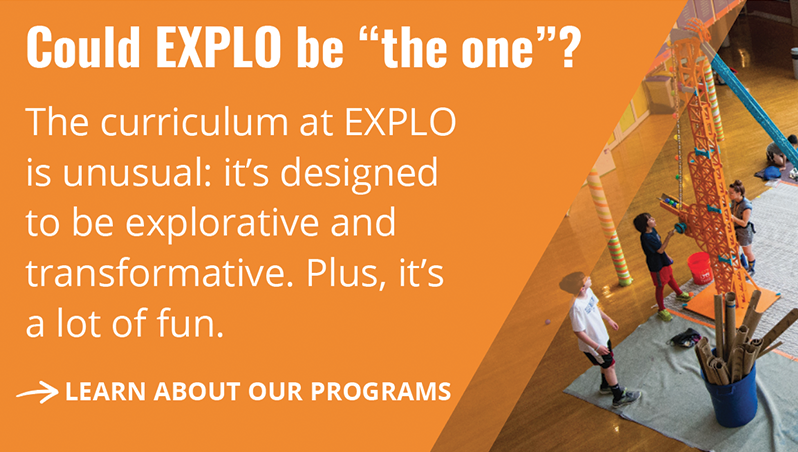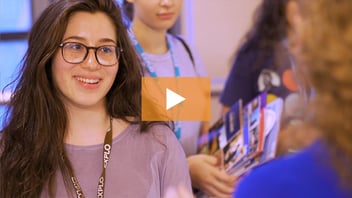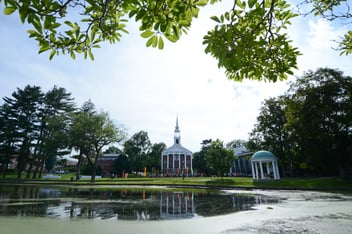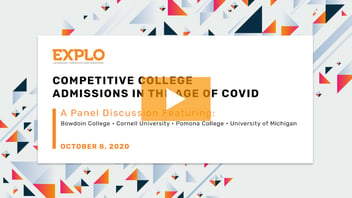How to Pick a Psychology Summer Camp for Your Teen


Here’s a mind bender for you -- psychology is consistently listed among the most popular college majors in the United States. Its popularity is no mystery. Psychology is literally the study of what makes us tick.
Psychology students not only gain insight into their own motivations and thought processes. The study of psychology also opens a window onto the drive and desires of people they encounter everyday.
The mind — the focus of psychology — is the essence of our humanity. “People skills,” such as emotional intelligence, negotiation, and coordinating with others, feature prominently in lists of essential job skills for the future. The study of psychology can give students a leg up in all these areas.
A scientific understanding of the human brain can make us into more empathetic people, better managers, and self-aware decision makers. Yet (here’s the riddle), despite the popularity and undeniable value of psychology, many high schools don’t offer it. If it makes it into the curriculum at all, it’s usually as an elective.
Psychology electives tend to be broad survey courses that cover a lot of historical ground but fail to zero in on anything with much detail — including the latest illuminating breakthroughs in neuropsychology. Sometimes, an elective course will focus on abnormal psychology, overlooking the benefits of positive psychology, which investigates how healthy brains can thrive.
Where and how can your high school-age child explore psychology — out of intellectual curiosity, or as an introduction to a possible college major and career — before they get to college?
How Your Teen Can Study Psychology When Their School Doesn’t Offer It
Independent study is always an option. If your child is interested in psychology, there are no shortage of books for them to immerse themselves in. Psychology makes frequent appearances on the bestseller lists, although some of the most successful titles may be heavy on the “pop” and light on the science.
There are also YouTube videos and TED talks covering all kinds of psychological issues.
During the summer, in the right environment, children can follow where their curiosity leads, free from the pressure of tests and the rigidity of standardized curricula.
But higher schoolers are busy people. As they juggle their studies, sports, extracurricular activities, social lives, and family obligations, they may not find room for independent intellectual pursuits. This is why summer might be the best time for your child to delve into a topic as rich and rewarding as psychology.
During the summer, in the right environment, children can follow where their curiosity leads, free from the pressure of tests and the rigidity of standardized curricula. The best and most effective educational summer programs encourage and empower children to explore, trying new things, discovering new areas of interest, and using their creativity to take on real-world challenges, aided by expert instructors and cutting-edge resources. The best psychology summer camps are no different.
Two Styles of Psychology Summer Camps for Teens
There are two types of psychology summer programs for high school students:
-
Programs that are mainly focused on psychology — while providing opportunities for recreation and unwinding.
-
Programs that include psychology as one of many topics students can dig into during their camp experience.
Which style is right for your high schooler?
If your child is just becoming interested in psychology, likely alongside several other subjects, the latter option is a way for them to get a taste for the field to see if they might enjoy a full-on immersion next summer or as a college major.
If your child is already excited about psychology and is strongly considering it as a college major, the former option will help them get the full picture of the field as it stands today and will dispel any media-driven misunderstandings they may have about it.
The Key Aspects of Excellent Psychology Summer Programs
Google “psychology summer camps” and you’ll be rewarded with a wealth of choices, many of which are hosted on campuses of the nation’s top universities. The American Psychological Association lists programs at places such as Columbia, Stanford, and Yale.
How can you narrow down your options? Two of the hallmarks of the best psychology summer camps for teens include:
-
An experiential approach. Your child has the whole school year to sit through lectures and PowerPoint presentations. Good psychology summer programs get their students out into labs, conducting experiments, undertaking dissections, working on high-tech equipment, and meeting and learning from psychology professionals. The latest educational research is clear that students engage with subjects better and retain more information with active rather than passive learning.
-
Expert educators. Who will be leading your child through their initiation into the world of psychology? Will it be teaching assistants or world-renowned experts in psychology? Top summer psychology programs connect students to professionals who represent the full range of possibilities in the field, from animal cognition to brain imaging. Students should have the opportunity to learn not only about psychology but also what it’s like to work in and with psychology.
There is, of course, a lot more to a high-quality academic summer program, from the dining options to the after-class activities. Comparing camps and whittling down your options is an investment of time, but it’s well worth it.
A great summer program can be a transformative experience for your child. It can guide them towards their future, spark a lifelong passion for a subject (like psychology), and teach them how to look at the world from tantalizing new perspectives.
For help finding your child’s next summer camp, get your free copy of our guide, “10 Steps to Find the Perfect Educational Summer Camp.”





